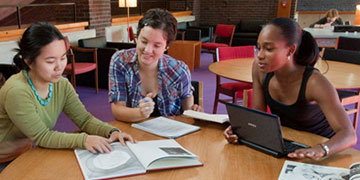To access this work you must either be on the Smith College campus OR have valid Smith login credentials.
On Campus users: To access this work if you are on campus please Select the Download button.
Off Campus users: To access this work from off campus, please select the Off-Campus button and enter your Smith username and password when prompted.
Non-Smith users: You may request this item through Interlibrary Loan at your own library.
Publication Date
2010-05-04
Document Type
Class Project
Study Type
EVS 300
Department
Environmental Science and Policy
Abstract
Pressure on the world’s oceans for economic gain and consumption has led to a rapid and unceasing decline in marine wildlife. Unsustainable fishing practices continue, as regulation is lax on enforcement around the world. Many species are on the verge of extinction and most fisheries on the brink of collapse, if extinction or collapse has not happened already. Health risks of seafood consumption due to mercury and other contaminants has become a notable reason for ceasing fish consumption. Despite health detriments and environmental degradation, seafood demand is high and increasing as the world population grows. In its increasing commitment to sustainability, Smith College should address its own impact on the world’s oceans, and if continuing to buy seafood, the college should buy the seafood that is recommended as sustainable.
Through email questionnaires to Dining Services, personal interviews with local fish suppliers in Northampton, and surveys to students, the actual sustainability of Smith seafood was assessed, and recommendations made to better our purchasing and consumption behavior. While currently Smith’s ocean impact is drastic, Dining Services is committed to making the best seafood choices possible. Already they are listening to student feedback and removing some of the unsustainable seafood, though it is just the beginning. Students seem interested in being included in the decision-making process regarding the seafood they consume, either by survey or taste-test. With appropriate recommendations of local, sustainable seafood sources, and student input to determine what we, the primary consumers want to eat, Smith’s impact on the world’s oceans can change for the better.
Rights
©2010 Alison Montgomery
Recommended Citation
Montgomery, Alison, "Something Smells Fishy A Look into the Sustainability of Smith College’s Seafood Consumption" (2010). Class Project, Smith College, Northampton, MA.
https://scholarworks.smith.edu/other_projects/24
Smith Only:
Off Campus Download


